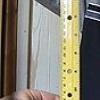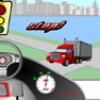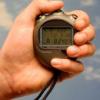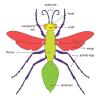Search Results
Showing results 341 to 360 of 458

Penny Cup Game
Source Institutions
In this optics activity, learners conduct an experiment to find out why two eyes are better than one!

How Fast Are You?
Source Institutions
This activity is designed to let learners measure their reaction time or response time to something they see.

Where Was That?
Source Institutions
In this activity (9th activity on the page), learners work in pairs to see how their perception of touch differs from reality.

Build a Soundscape
Source Institutions
This is a virtual representation of a sound mixer containing pre-looped sounds of animal, insect, and environmental noises.

Stop: Practice Stopping at Vehicle Intersections
Source Institutions
This is an online game about stopping distance. Learners choose one of three vehicles and one of three speeds.

Moving to a Healthier Life
Source Institutions
This game presents you with several different choices you can make in the course of your everyday life to increase your level of physical activity and be healthier.
Jump on Tens: Counting Fun
Source Institutions
Learners combine counting, multiples, and number patterns with jumping up and down. To start, pick a counting number.

Cheshire Cat
Source Institutions
Can you deceive your eyes? When your eyes work normally, you see a nice 3 dimensional picture, but what happens when each eye sees something different?
Read the Label: Nutrition and Percentage
Source Institutions
This activity combines learning about nutrition, math of measurement and proportion, and healthy eating. Start by distributing food packages with Nutrition Facts labeled.

Just a Minute
Source Institutions
How much can you do in one minute? In this activity, learners estimate how many times a partner can complete a task (like writing their name or jumping jacks) in one minute.

Self-Assembly Game
Source Institutions
This is a quick game about self-assembly (page 2 of PDF under Self-Assembly Activity). Like the molecules of DNA, learners will self-assemble into a pattern by following a simple set of rules.

Knee Jerk Reflex (Patellar Reflex)
Source Institutions
In this quick and simple activity about reflexes (third activity on the page), learners conduct a simple test to explore the knee jerk reflex, typically conducted at the doctor's office.

Your Body in Your Mind's Eye
Source Institutions
This activity is about how you form mental images of your body's position in space, independent of vision. Can you take a sip of water from a cup with your eyes closed?

What Causes Pressure?
Source Institutions
In this kinesthetic activity that demonstrates pressure, learners act as air molecules in a "container" as defined by a rope.

Aesop's Arithmetic
Source Institutions
In this activity (located on page 9 of the PDF), learners are introduced to Aesop's fable, "The Crow and the Pitcher." In the story, a clever crow drops pebbles into a pitcher to cause the water level
Is It Possible: Estimating Measurement
Source Institutions
In this activity, learners will decide together on a question about how far, long or high the group could reach together.

Invent an Insect
Source Institutions
In this creative activity, learners will find out what makes an insect an insect by studying examples of insect adaptations and by examining why there are so many different types of insects.

Rock Cycle Roundabout
Source Institutions
In this activity, learners will learn how igneous rock, metamorphic rock, and sedimentary rock are formed as part of the rock cycle and that the same forces that produce/change rocks also produce/chan
Animal Math Posters
Source Institutions
These math posters have questions written on them, such as: How fast can a cheetah run? or How long can a giant tortoise live? Post these around the room or leave them out for children to explore.

Kid Machine
Source Institutions
This activity is on page 3 (continued on page 2) of the pdf, part of the Simple Machines Discovery Box. In this fun activity, learners "create" a complex machine by simulating the parts in action.
